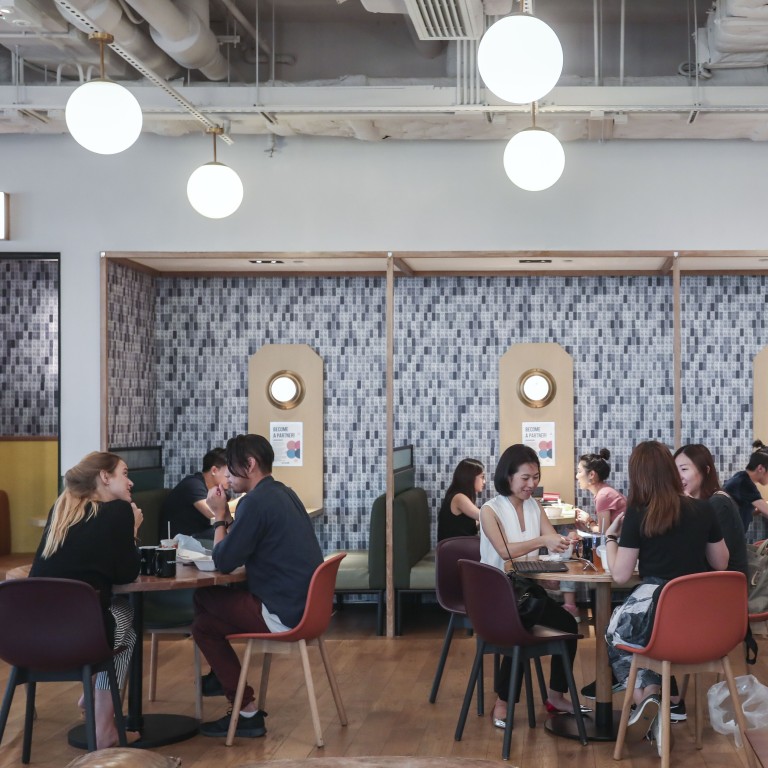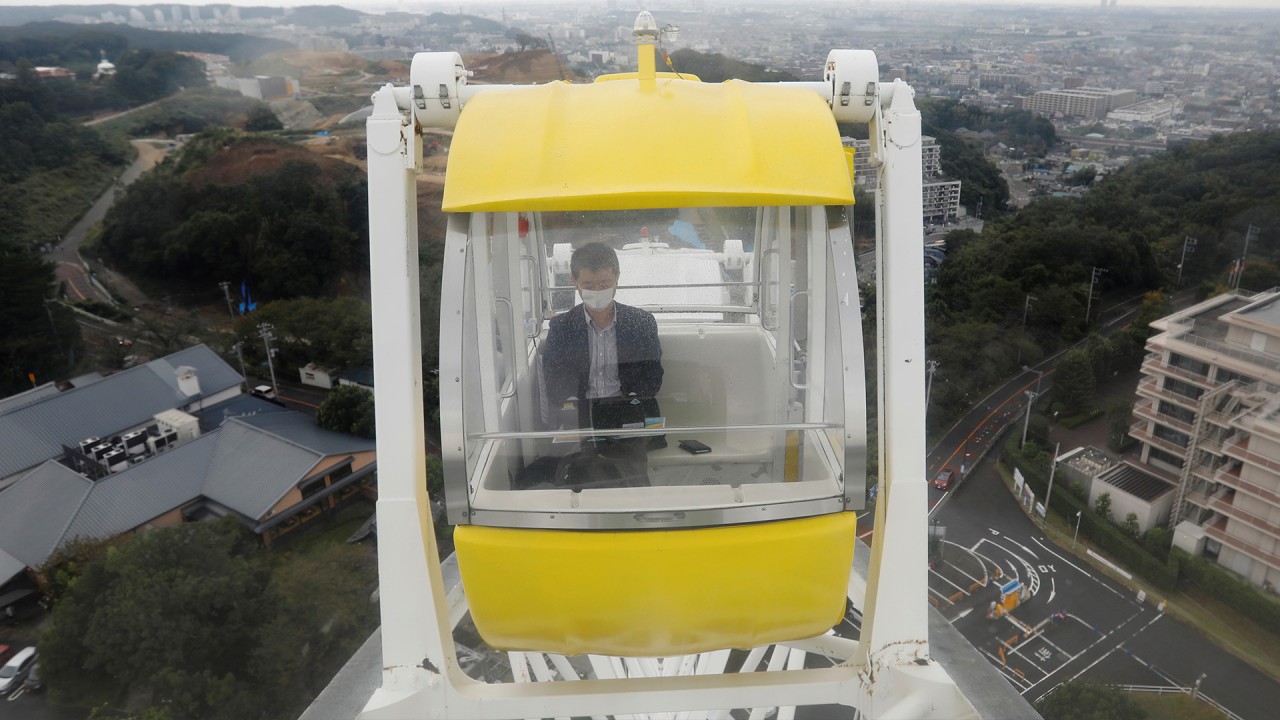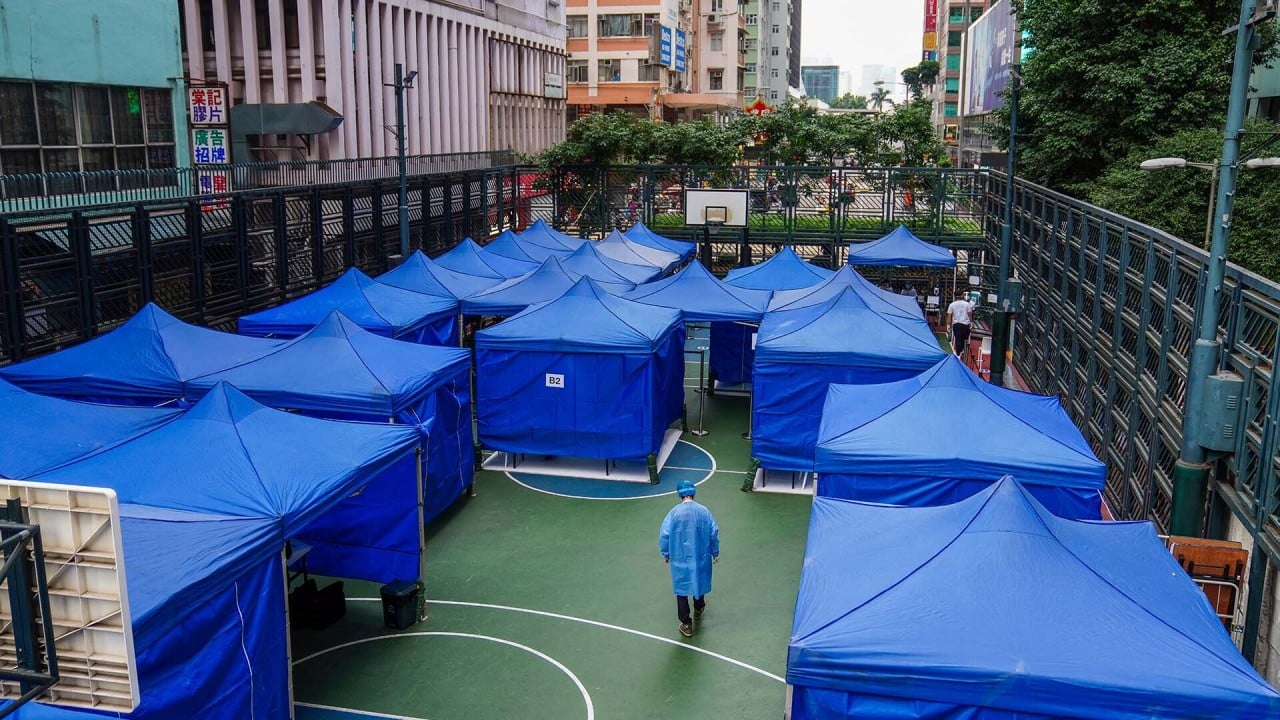
Hong Kong’s co-working sector set to stabilise, recover as balance returns after years of unbridled expansion
- Hong Kong’s co-working industry is recovering as many operators have folded following years of overexpansion, says Patrick Mak of Knight Frank
- Hong Kong has the third largest number of co-working spaces in the world after London and New York, according to survey by UK firm CircleLoop
Hong Kong’s co-working sector is on track to stabilise and recover after a period of rapid expansion and will be well supported by the shift to remote working, industry observers say.
The co-working industry in Hong Kong is getting better now after adjustments made in the last few quarters, said Patrick Mak, executive director at Knight Frank.
“Previously many operators were in overexpansion mode, but then the market adjusted and many closed down and disappeared, creating a new balance point between supply and demand,” said Mak. “We think it will stabilise again towards year-end.”

01:24
Japanese theme park opens Ferris wheel for remote workers during coronavirus pandemic
This month, IWG opened its third centre in the city – a 50,000 sq ft flex office at The Quayside office tower in Kwun Tong, said Paul MacAndrew, country manager for IWG.
Separately, a survey by a UK-based company in May found that Hong Kong had the third most number of co-working spaces in the world after London and New York. Hong Kong had 166 co-working spaces, behind 313 in London and 229 in New York, according to the survey by CircleLoop, which operates a cloud-based business phone system.
“No one can deny that the 2020 pandemic has had a lasting impact on the way that companies work for good,” CircleLoop said. “As part of remote working, completing your workday from co-working spaces is a concept that businesses are taking advantage of more than ever before.”

02:02
Fourth wave of coronavirus cases in Hong Kong prompts tougher Covid-19 measures
The pandemic has been a game changer, creating instant disruption to the traditional workplace culture, while workers and companies adapt to the change, theDesk’s Johnson said.
With the remote working trend and decentralisation of workforce being implemented by multinational companies, the co-working industry is here to stay, he added.

